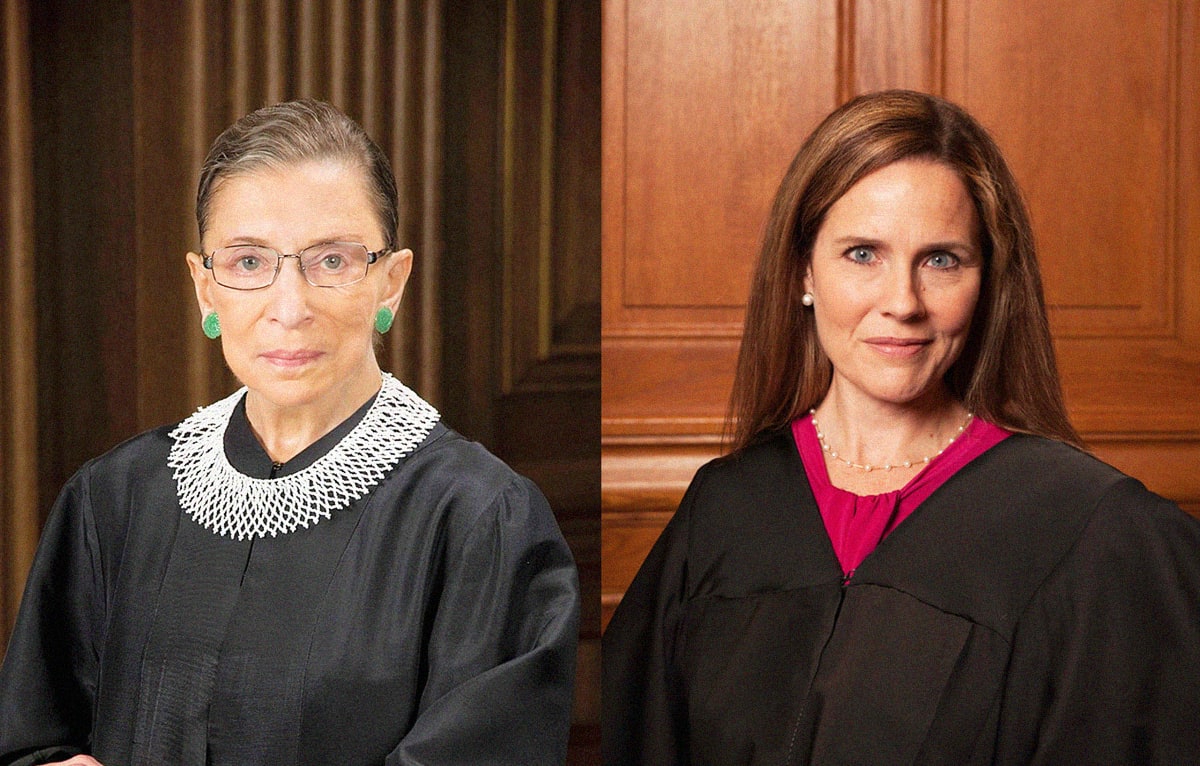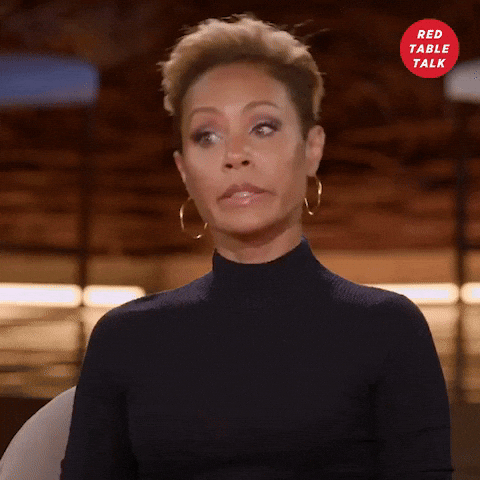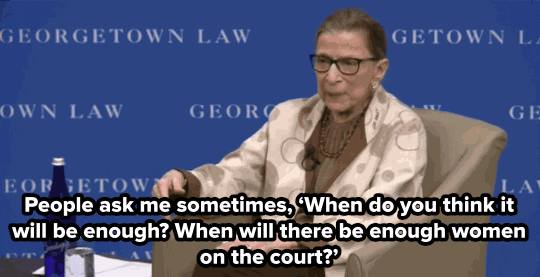Reproductive Rights & Abortion: Amy Coney Barrett vs. Ruth Bader Ginsburg

By now you’ve probably seen endless articles go by about both the life and death of bad ass Supreme Court justice Ruth Bader Ginsburg, who died in September at the age of 87 after serving the Court for almost 30 years. She spent a lifetime successfully fighting the legal manifestations of gender discrimination.
I, for one, wish she’d lived long enough to see the world through the US election on November 3, but alas, the universe had other plans. You know, like Trump forcefully (because how else?) pushing for his own nominee—Amy Coney Barrett—to fill her spot. It only took him about a week to get to this, in spite of the fact that Ginsburg’s dying wish was to have her successor named after the election. Smart lady.
Thiru Vignarajah, for the Baltimore Sun, puts it this way: “Justice Ginsburg’s fervent last wish — to have her successor named by the next president — was not about preserving the Supreme Court’s precarious political balance [although, I think a semblance of balance would be positive]. It was a warning to a nation already on edge that appointing a justice on the eve of an acrimonious presidential election would drain the court of its public legitimacy and tear America apart. It would turn the judiciary into the one thing, particularly in this moment, it cannot afford to become: another polarized and nakedly political body.”

While the impacts of Barrett joining the Supreme Court would be incredibly damaging regarding a range of issues (gun rights, immigration, racial discrimination, same sex marriage, and healthcare, to name a few), the scope of this piece is a woman's right to choose—or lack thereof. In other words, Barrett thinks it’s hunky dory to be all up in your uterus, whispering sweet restrictions in your ear. Think of it this way: with Barrett on the 9-member docket, Republican appointees would outnumber Democratic ones 6-to-3. The last decision of the court to address an abortion restriction did end up striking it down, but only 5-4. You do the math. Those who care about anything reproductive rights have reason to worry.
Horrifyingly, Barrett is popular with voters, and at this point it looks like she’ll be getting in. It could all be finalized as early as Monday—just 8 days before election day. All this in spite of a Democratic boycott of the vote! After all, this is Trump's chance to tip the court even further to the right pre-election. Interesting background tidbit: Trump was also the one who nominated Barrett to her current position as a Chicago appeals court judge back in 2017. Barrett, who is also a mother of seven, is a mega favorite among the religious right. Tellingly, when Pence was asked about her during his debate against Kamala Harris earlier this month, he didn’t waste time complimenting her on her “sizeable American family.”
What Ruth Bader Ginsburg did for reproductive rights
One of Ginsburg’s most quotable quotes: “Fight for the things that you care about, but do it in a way that will lead others to join you.” This also happened to be her approach to reproductive rights, and abortion in particular. Ginsburg (also a mother, I'll mention), consistently spoke the truth about why having the right to choose is important. To her, abortion rights were about equality, and restrictions on abortion access were part of the continual effort to treat women as second-class citizens.
In 1993, during her confirmation hearings, Ginsburg was asked about Roe v. Wade, a historic 1973 Supreme Court case which established that access to a safe and legal abortion is a constitutional right. She told senators, “It is essential to woman’s equality with man that she be the decisionmaker, that her choice be controlling. If you impose restraints that impede her choice, you are disadvantaging her because of her sex.” She continued, “When Government controls that decision for her, she's being treated as less than a fully adult human responsible for her own choices.”
In 2007, in response to Gonzales v. Carhart, a case which succeeded in upholding a federal restriction on abortion, Justice Kennedy infamously wrote, “While we find no reliable data to measure the phenomenon, it seems unexceptionable to conclude some women come to regret their choice to abort.” The court’s solution was to ban abortions in order to avoid women's potential regret! Justice Ginsburg’s response is well known: “This way of thinking reflects ancient notions about women’s place in the family and under the Constitution — ideas that have long since been discredited.” She pointed to Supreme Court cases from the late 19th to early 20th centuries which upheld the state’s refusal to let a woman practice law, along with “protective” laws that limited the number of hours she could work — legislation that had been justified by “our delicacy,” she added. Ginsburg was the only woman on the court at the time.

What Amy Coney Barrett would mean for reproductive rights
Trump has been clear that he only wants to appoint Supreme Court justices who are ready to overrule Roe v. Wade, and his nomination of Barrett is just that. Unsurprisingly, anti-choice groups have championed Barrett. Coupled with a conservative majority, her vote could have consequences for abortion rights for decades to come.
Because her record indicates that she does, indeed, oppose abortion access, the Democrats have questioned Barrett endlessly, but she has largely evaded these questions, even going so far as to cite Ginsburg’s belief that a judge should remain impartial and not express a predetermined opinion. Ahem. Of course, Ginsburg only adhered to this advice if she had no predetermined opinion—and abortion, as we've already established, was not such a case. But Barrett’s actions speak for her: in 2006 she signed a newspaper ad calling for the overturning of Roe v. Wade, for starters. But that's not all. From her home state of Indiana, she has also considered three laws restricting abortions. In all three cases, she expressed misgivings with earlier rulings that struck down the laws.
For anyone who sees what I see (a real problem with Barrett being a Supreme Court judge), there is a “disturbing historical irony” worth noting. Ginsburg herself replaced Justice White, who happened to be 1 of 2 dissenting votes on Roe V. Wade. So, how many steps back might the likely outcome of our current scenario be? The math may be depressing, but it's still worth doing.

Yes, it’s exhausting, but speaking up never goes out of style
Democratic Senator Gary Peters recently opened up about a personal experience with abortion, something no other sitting senator has ever done. His wife Heidi almost died when she was denied an abortion in the late 1980s, even though her life was at risk. “It’s important for folks who are willing to tell these stories to tell them, especially now,” he said.
Because the attack on abortion rights is a relative constant, the Supreme Court is considering its next abortion case even as we speak: a challenge to an FDA policy that requires patients to risk COVID-19 exposure needlessly in order to have access to an abortion. From where I’m standing, whether or not the remaining justices allow Trump and friends to reinstate this life-threatening policy during the pandemic will depend in part on whether Barrett’s confirmation goes through.
With the country fighting a bloody multi-level war, the fight to protect reproductive freedom is more urgent than ever. Ginsburg’s untimely death is a reminder to us all that when it comes to gender quality and the right to choose your body’s destiny like a grown ass woman, settling is never an option!




